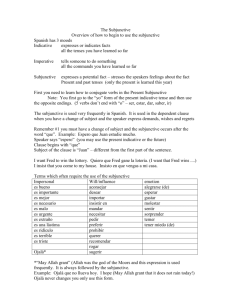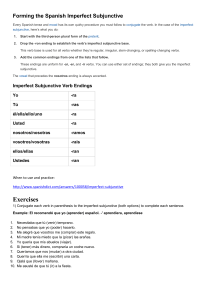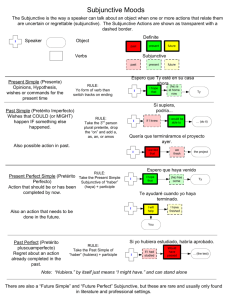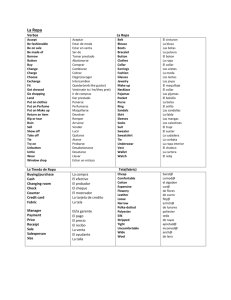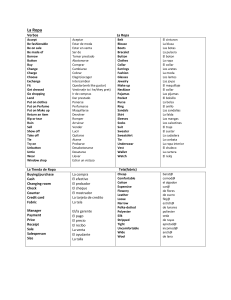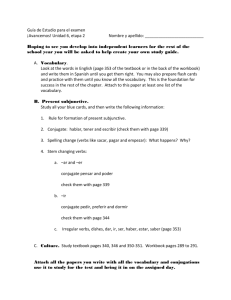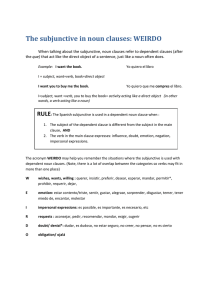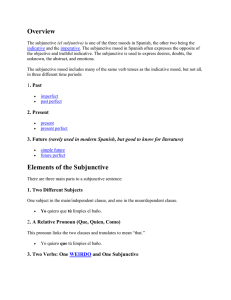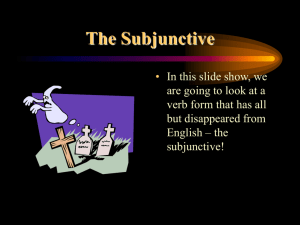OJALÁ: SUBJUNCTIVE
advertisement
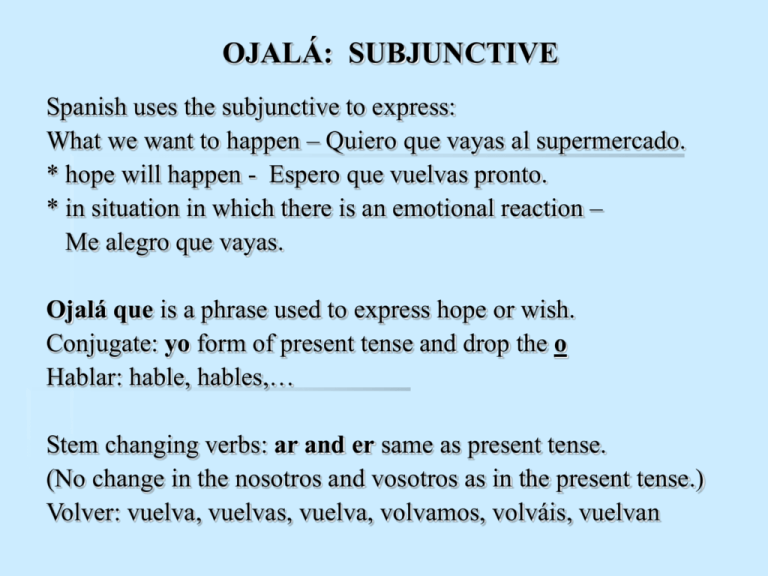
OJALÁ: SUBJUNCTIVE Spanish uses the subjunctive to express: What we want to happen – Quiero que vayas al supermercado. * hope will happen - Espero que vuelvas pronto. * in situation in which there is an emotional reaction – Me alegro que vayas. Ojalá que is a phrase used to express hope or wish. Conjugate: yo form of present tense and drop the o Hablar: hable, hables,… Stem changing verbs: ar and er same as present tense. (No change in the nosotros and vosotros as in the present tense.) Volver: vuelva, vuelvas, vuelva, volvamos, volváis, vuelvan OJALÁ: SUBJUNCTIVE Some verbs have changes other than stem change in yo form: Tener: tenga, tengas, tenga, tengamos, tengáis, tengan Verbs ending in: car; gar; zar have a change. car: que gar: gue zar: c sacar: saque pagar: pague empezar: empiece OJALÁ: SUBJUNCTIVE Irregular Verbs: dar: dé; des; dé; demos; deis; den estar: esté; estés; esté; estemos, estéis; estén ir: vaya; vayas; vaya, vayamos; vayáis; vayan saber: sepa; sepas; sepa; sepamos; sepáis; sepan ser: sea; seas; sea; seamos; séais; sean Stem changing verbs: ir verbs: For e changes to i verbs = the e changes to i in all persons including in nosotros and vosotros. e = i pedir: pida; pides; pida; pidamos; pidáis; piden OJALÁ: SUBJUNCTIVE For e changes to ie changing verbs: e = ie In nosotros and vosotros e changes only to i. preferir: prefiera; prefieras; prefiera; prefiramos; prefiráis; prefieran Stem changing verb o = ue the change of o to ue except in nosotros and vostros when o goes to u only. dormir: duerma; duermas; duerma; durmamos; durmáis; duerman SUBJUNCTIVE WITH IMPERSONAL EXPRESSION Use some impersonal expressions to show uncertainty that something will happen. Use subjunctive when impersonal expression gives an opinion that something will happen. Use subjunctive with impersonal expressions that denote possibility, probability, importance, or other value judgment, necessary, preferable, good, or bad. SUBJUNCTIVE WITH IMPERSONAL EXPRESSION Impersonal Expressions: Es necesario que… Es preferible que… Es bueno que… Es malo que… Es probable que… Es posible que… Es importante que… Es mejor que… Es lógico que… Example: Es probable que él vaya hoy. Pronouns are placed before the verb. Example: Es posible que Juan te llame hoy. SUBJUNCTIVE HABER Hay = There is / There are Infinitvie of Hay is Haber Subjunctive of Haber is Haya haya hayas haya hayamos hayáis hayan
